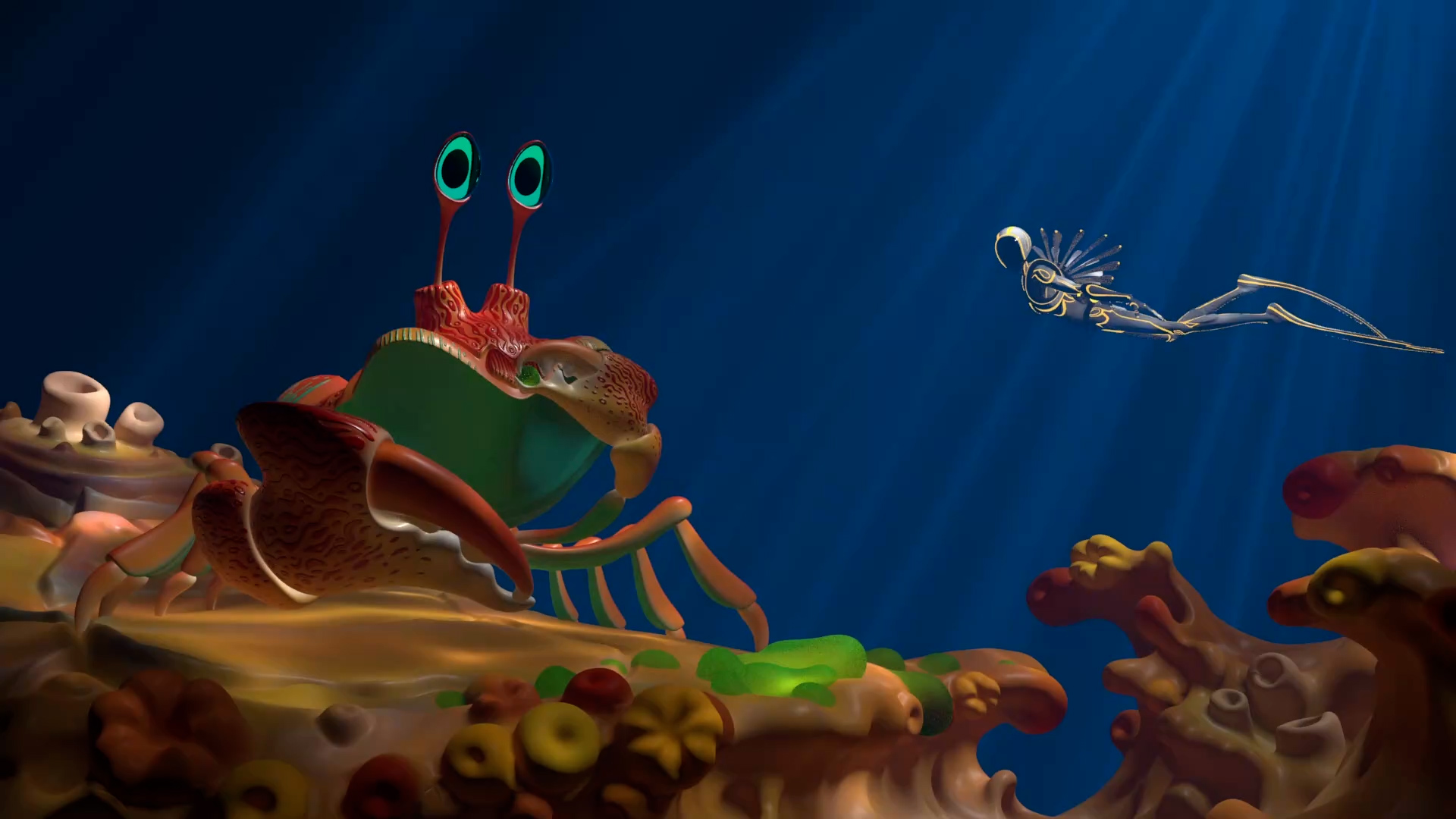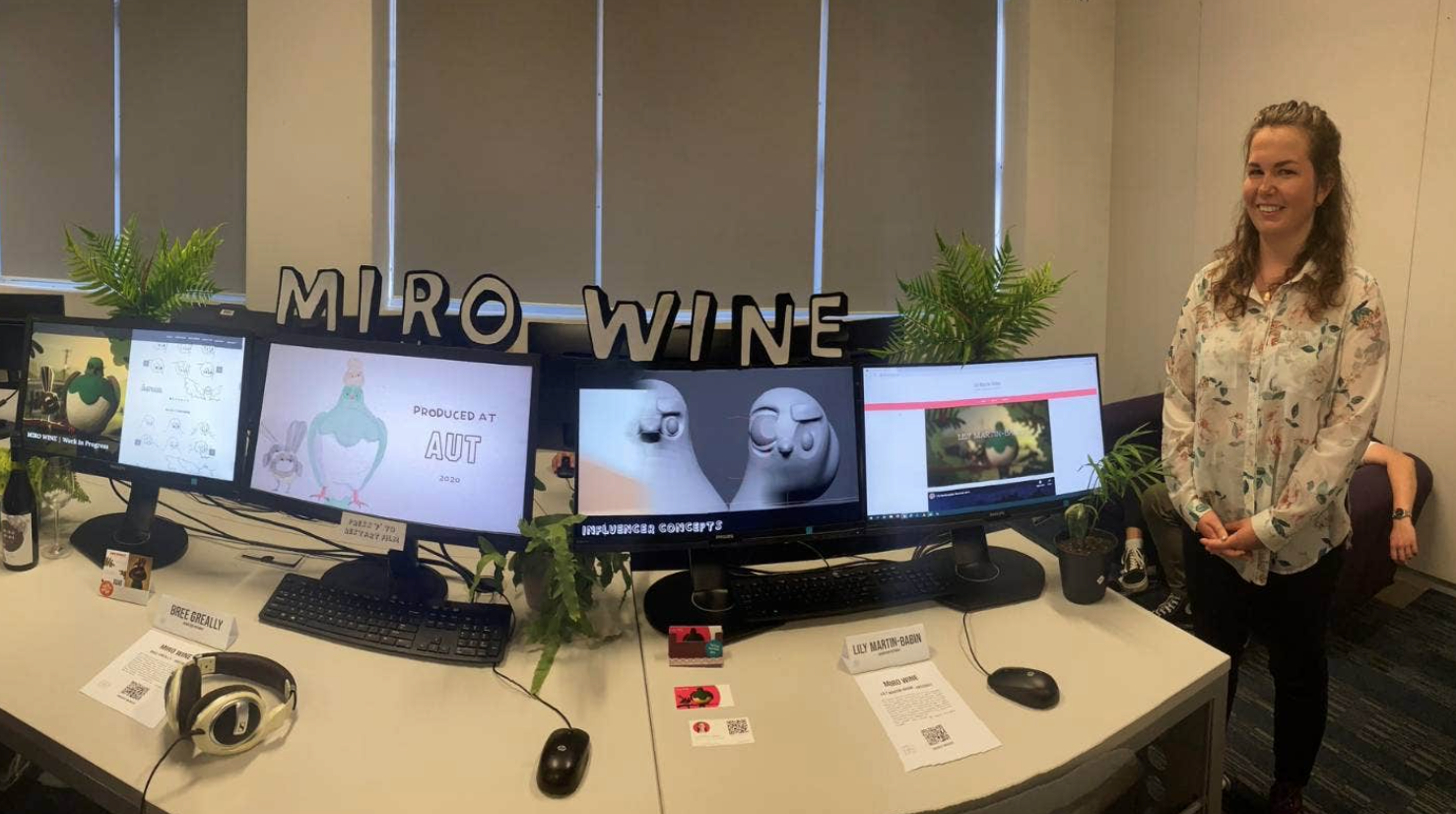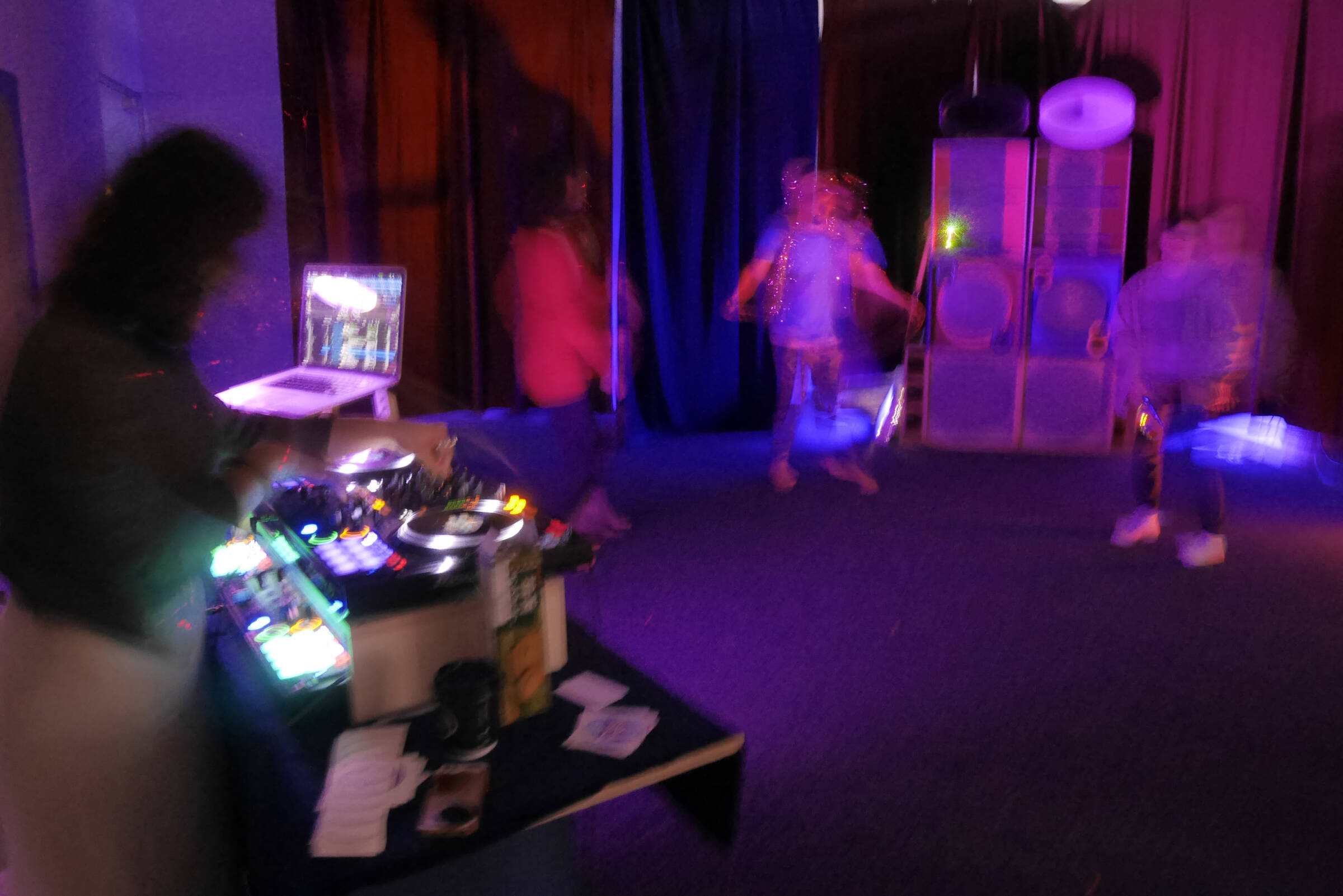The film is one of three nominated in the Best New Zealand Film category, and if it wins, becomes eligible for entry into the Oscars.
“It’s just crazy thinking that our little student film was something that people like. It’s really rewarding for us,” Martin-Babin said this week.
“We’re absolutely just shocked that we got nominated for this prize – we weren’t expecting it. That it was one of only three nominated was a big shock to us as well,” she said.
The opportunity to take it to the Oscars would be “really hard to believe”, she added.
Martin-Babin is currently based in Auckland, where she works full time as an animator for Kara Technologies, creating sign language avatars which help to remove the communication barriers and information gaps for the Deaf community.
The film Miro Wine tells the story of a grumpy kererū (New Zealand Pigeon) who is annoyed by the affections of a friendly pīwakawaka (New Zealand Fantail).
Slowly a bond is formed and the kererū ends up missing the pīwakawaka when it is no longer there.
Miro Wine is a reference to the fact that the kererū is known to eat the fermented berries of the Miro tree and subsequently become intoxicated.
The subject choice came from a passion for New Zealand and the country’s wildlife, Martin-Babin said.
“We thought the birds both had the most interesting personalities. Fantails are always super chirpy. When you see them they’re quite young at heart and really energetic, whereas the kererū is super slow.”
“We sort of imagined him as this old man who prefers to be left alone, and so we thought their personalities would make a really good mix, and they could hopefully learn from one another.”
There is definitely a message in the film and a lesson to be learnt, Martin-Babin said. “It’s about friendship and compassion.”
“Taking people and relationships for granted means you’ll end up like our kererū; you won’t know what you’ve got until it’s gone. Unfortunately, not everyone has a persistent fantail friend to break down those walls!”
Covid-19 and the accompanying lockdowns had a significant impact on the production of the film, Martin-Babin said. “Lockdown allowed us to focus on more achievable goals. In a way it helped us to make smarter decisions, and simplify things.”




